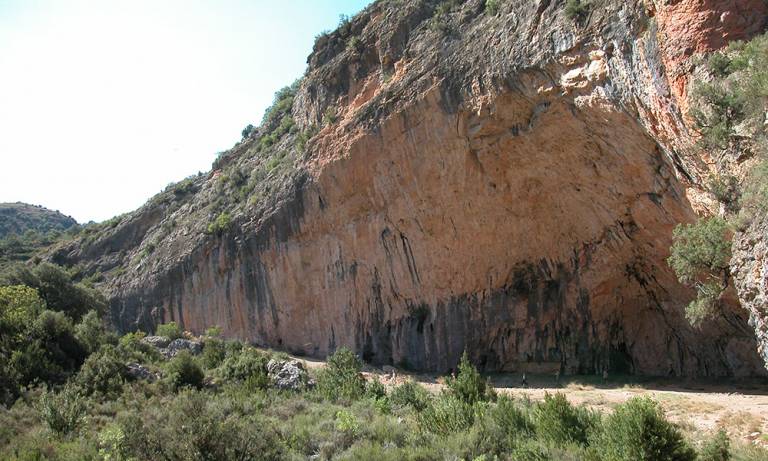The UCL Institute of Archaeology undertakes world-leading research in early human archaeology.

From projects focused on the origins of stone tool technology, to the biological study of human remains from archaeological sites and fieldwork looking at the responses of Neanderthals and modern human populations to climate change, the Institute has a strong record of high quality fieldwork and lab research.
One research focus is the process of growth in remains of children, particularly through the microscopic layered growth of dental enamel. Another focus is palaeopathology, including both skeletal and dental disease, diagnostic and epidemiological problems. Staff are active in research on the past half million years of human evolution, particularly the morphology of teeth and jaws and the heavy tooth wear which they show. As part of research in this area, staff have also developed new techniques for excavating, conserving, recording and storing human remains, from cemetery sites in Greece, Turkey, Egypt and Peru.
Lithics are usually the only tools preserved in Palaeolithic sites, and are also a major component of late Prehistoric assemblages. For most of human history, stone tools are all that may be available to archaeologists, and are an invaluable source to understand how ancient humans lived. A number of staff work on several aspects of lithic studies, which include Palaeolithic and later prehistoric assemblages from Africa, Europe and elsewhere. The Institute's dedicated Lithics Laboratory facilitates both staff and student research in this field.
Projects
Current projects
- Acheulean cognition
- Arabian Prehistory
- Archaeology of growth and development in children
- The Archaeology of the Western Isles (Outer Hebrides)
- The Beaker People
- Between the Mountains and the Flood - Early Neolithic Settlement Archaeology in Northwestern Romania
- Boxgrove Project
- Colonization and connectivity in tropical Wallacea and Sahul
- Diet and dental disease
- East African coastal caves
- Evolutionary and Interpretive Archaeologies
- Feeding Stonehenge
- Function and form of teeth in human evolution
- Hunting for Neanderthal and Human Fossils at the Periphery of Palaeolithic Europe
- Ice Age Island: The Early Prehistory of La Cotte de St Brelade, Jersey and wider La Mancheland
- Pleistocene Hunter-Gatherer subsistence in Sri Lanka
- Qadisha Valley Project, Lebanon
- St Patrick’s Chapel Excavation Project
- The Violet Bank Survey: Capturing Fragile Intertidal Prehistory at Scale
Recent projects
- Antikythera Survey Project
- Azraq Project, Jordan
- Beedings Palaeolithic Survey
- Changing London: Town Planning from a Human Evolutionary Perspective
- Cultural Evolution of Neolithic Europe (EUROEVOL)
- Excavations at Cova Gran, Spain
- Excavations at Roca dels Bous, Spain
- Hand to Mouth
- Learning to be Human
- Macroevolutionary patterning in Technological Evolution
- ORACEAF: The Origins of the Acheulean in East Africa
- Palaeoanthropological research in the Ethiopian Rift Valley
- Transmission of innovations: comparing and modelling the spread of farming practices in Europe (EUROFARM)
- Valdoe Survey
 Close
Close

